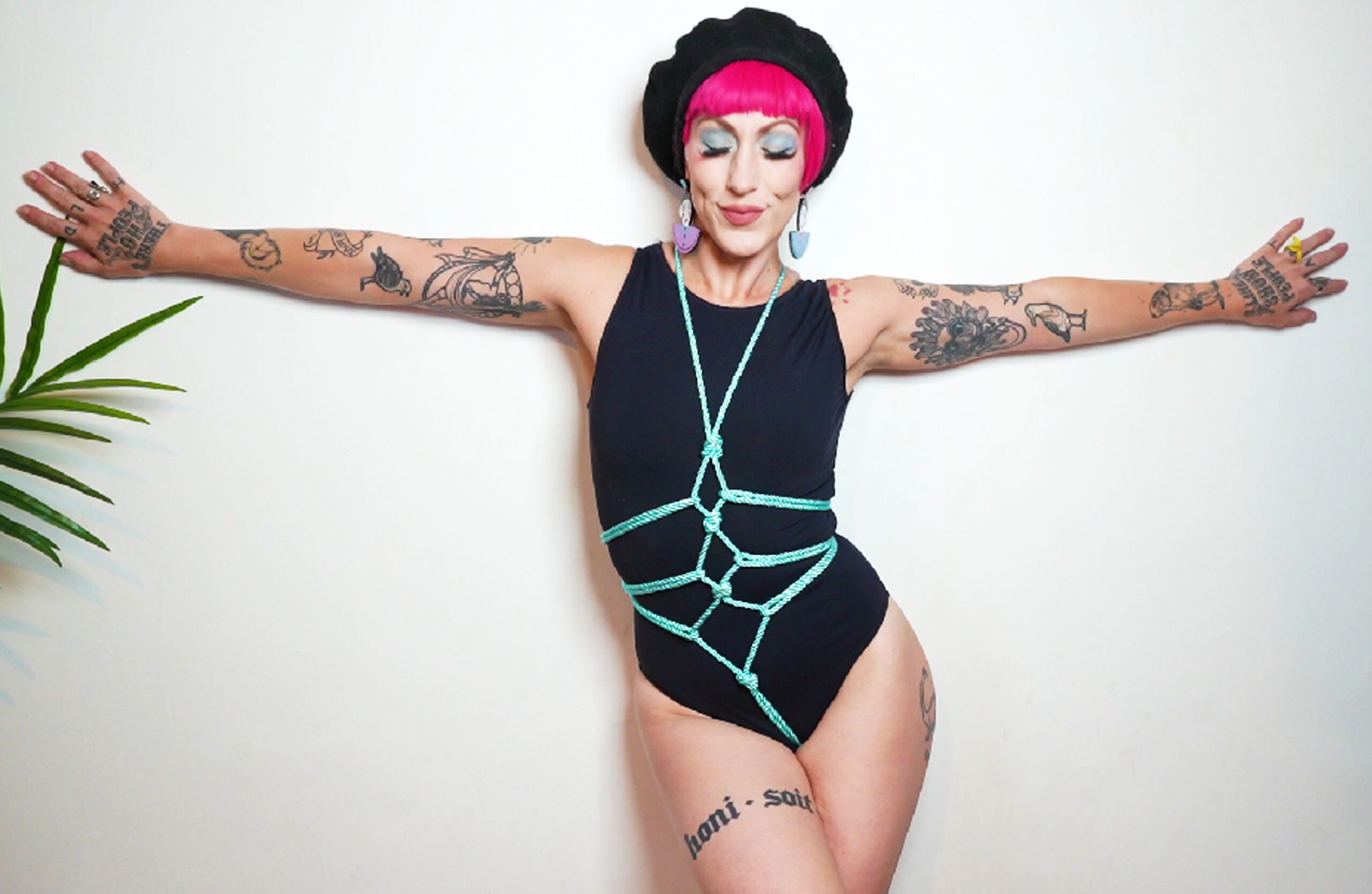Understanding Demigender Identities
Demigender refers to a spectrum of gender identities that fall somewhere between feeling fully aligned with one gender and identifying as non-binary.
It’s important to remember that demigender is an umbrella term, encompassing various experiences and expressions. Someone who identifies as demigirl, for example, might feel partially feminine but not fully woman. Similarly, a demiboy might resonate with some masculine aspects but not completely identify as male.
Understanding the nuances of demigender identities is crucial when building a strong relationship with a partner who identifies this way. Here’s what you need to know:
**Key Points to Understand:**
1. **Respect their pronouns and name:** Just as with any gender identity, respecting someone’s chosen name and pronouns is fundamental. This shows basic respect and understanding.
2. **Avoid assumptions:** Don’t assume you know what it means to be demigender for your partner. Everyone’s experience is unique. Ask questions if you need clarification, but always do so respectfully and with a genuine desire to learn.
3. **Be open-minded about gender expression:** Demigender individuals may express their gender in various ways, which may change over time. Be accepting and supportive of their evolving identity.
4. **Listen and validate their feelings:** Gender identity can be deeply personal. Create a safe space where your partner feels comfortable sharing their experiences and emotions without fear of judgment.
5. **Educate yourself:** Continue learning about demigender identities and the LGBTQ+ community. The more you understand, the better equipped you’ll be to be a supportive and understanding partner.
Understanding demigender identities is crucial for building a respectful and supportive relationship with a demigender partner. Demigender individuals identify partially as one gender but not fully. This means their gender identity is on a spectrum, falling somewhere between two distinct genders.
Here’s a breakdown of key aspects to understand:
-
Demigender Spectrum: Demigender isn’t a monolithic experience. It encompasses various identities like demiboy (partially boy), demigirl (partially girl), or demifluid (gender fluctuates between two genders).
-
Individuality and Fluidity: Each demigender person’s experience is unique. Some may feel strongly about one gender aspect, while others might express their identity more fluidly.
-
Respecting Pronouns: Pronouns are essential for affirming someone’s gender identity. Ask your partner about their preferred pronouns and consistently use them. Using incorrect pronouns can be hurtful and invalidating.
Navigating pronouns in English can seem complex, but here are some tips:
-
Ask Directly: If unsure about someone’s pronouns, politely ask. It’s better to clarify than make assumptions.
-
Use They/Them as a Default: When uncertain about an individual’s pronouns, using “they/them” as a gender-neutral option is respectful.
-
Correct Yourself Gently: If you make a mistake, apologize sincerely and correct yourself. Show your willingness to learn and respect their identity.
Building a strong relationship with a demigender partner involves open communication, active listening, and continuous learning.
Understanding demigender identities is crucial for building a strong and respectful relationship with a demigender partner.

Demigender is an umbrella term encompassing gender identities that are partially one gender and partially another, or partially one gender and partially non-binary.
It’s important to remember that demigender experiences are diverse and personal.
Here are some key points to consider:

-
Respect their chosen pronouns and name. This is fundamental to showing respect for their identity. Always use the pronouns and name they have identified with.
-
Avoid making assumptions about their gender expression or presentation. Demigender individuals may express their gender in a variety of ways, and it’s important not to make assumptions based on their appearance or behavior.
-
Listen and learn from them. Ask open-ended questions about their experience with demigender identity, but be mindful of not putting pressure on them to share more than they are comfortable with.
-
Educate yourself. Take the time to understand what it means to be demigender and the challenges that demigender individuals may face. There are many resources available online and in libraries.
-
Be patient and understanding. Learning about and accepting a new identity takes time. Be patient with your partner as they navigate their gender identity and be there to support them.
Building a strong relationship with a demigender partner is about creating a safe, supportive, and respectful environment where they can feel comfortable being themselves.
Open communication, empathy, and willingness to learn are essential ingredients for success.
Communication is Key
Communication is absolutely key to building a strong and healthy relationship with anyone, regardless of their gender identity. This becomes especially important when navigating the complexities of a demigender partner’s experience.
Open dialogue allows you to understand your partner’s unique needs and preferences regarding their gender expression and how they want to be addressed.
It provides a safe space for them to share their feelings, thoughts, and experiences openly, without fear of judgment or misunderstanding.
Actively listening to your partner is crucial. Pay attention not only to their words but also to their body language and nonverbal cues.
Show empathy and validate their feelings, even if you don’t fully understand them. Remember that everyone’s journey with gender identity is unique.
Don’t be afraid to ask clarifying questions if something is unclear. Frame your questions in a way that shows genuine interest and respect. For example, instead of saying “What does it mean when you say you’re demigender?” try “I want to understand better. Can you tell me more about what being demigender means to you?”
Be open to learning and growing alongside your partner.
Gender identity is a complex and evolving concept, and your understanding may change over time. Embrace this journey of discovery together.
Regular check-ins can help keep the communication flowing. These conversations don’t need to be formal or lengthy. Even short, everyday check-ins like “How are you feeling today?” or “Is there anything I can do to support you?” can make a big difference.
Finally, remember that **respect** is paramount.
Respect your partner’s pronouns, name, and chosen gender expression. Strive to create a supportive and loving environment where they feel comfortable being their authentic self.
Communication is the bedrock of any healthy relationship, and this rings especially true when navigating the complexities of gender identity with a demigender partner.
Understanding demigender identities requires open and honest conversations. A demigender individual may identify partially as one gender while also feeling connected to another or several genders.
This fluidity can sometimes be challenging for partners to grasp, so patience and willingness to learn are crucial.
Active listening is an essential component of effective communication in this context. It involves not just hearing your partner’s words but truly understanding their feelings and experiences.
Here’s how active listening can strengthen your relationship:
* **Pay Undivided Attention:** When your partner speaks about their gender identity, put away distractions, make eye contact, and focus on what they are saying.
Show them that you value their words and the emotions behind them.
*
Use Verbal Affirmations:
Nod, say things like “I understand,” or paraphrase what your partner has said to demonstrate that you are listening and trying to comprehend their perspective.
* **Ask Clarifying Questions:**
If something is unclear, politely ask for clarification instead of making assumptions.
For example, you could say, “Can you help me understand what it means when you say…?”
*
Avoid Interrupting:
Allow your partner to fully express themselves without interruption.
*
Validate Their Feelings:
Even if you don’t fully grasp everything, acknowledge and validate your partner’s feelings. Phrases like “It sounds like this is really important to you” can go a long way in making them feel heard and understood.
Remember, building a strong relationship with a demigender partner involves continuous learning, open communication, and a genuine desire to understand their unique experience. Active listening is a powerful tool that can foster empathy, intimacy, and a deeper connection.
Communication is paramount in any relationship, but it’s especially crucial when navigating the complexities of gender identity.
For a demigender individual, understanding their unique experience with gender is fundamental. It involves actively listening to their expression of their gender and validating their feelings.
Ask open-ended questions like, “What does being demigender mean to you?” or “How can I best support you in expressing your gender?”

Remember that a demigender person’s experience with gender may fluctuate and evolve over time. Be patient, understanding, and willing to learn alongside them.
Creating a safe space involves fostering an environment where they feel comfortable being their authentic self without fear of judgment or discrimination.
Use **gender-neutral language** whenever possible, such as “partner” instead of assuming gendered terms.
Avoid making assumptions about their pronouns or how they express their gender. Always ask and respect their chosen pronouns.
Educate yourself on demigender identity and related terminology. This demonstrates your commitment to understanding and respecting their experience.
Be mindful of microaggressions, even unintentional ones. These seemingly small remarks can have a significant impact on a person’s sense of safety and belonging.
Celebrate their individuality and support their journey of self-discovery. Let them know you are there for them unconditionally.
Building a strong relationship with a demigender partner involves ongoing communication, empathy, and respect. By creating a safe space where they feel seen, heard, and valued, you can nurture a loving and lasting bond.
Building a Strong Relationship
Building a strong relationship with any partner, regardless of their gender identity, involves understanding, communication, respect, and shared experiences.
When navigating a relationship with a demigender partner, it’s essential to approach it with open-mindedness and a willingness to learn about their unique experience.
Here are some tips for building a strong and loving relationship with a demigender partner:
- Educate Yourself: Take the time to understand what demigender means. Learn about their specific gender identity and how they express it. This shows respect and genuine interest in who they are.
- Listen and Learn: Ask your partner open-ended questions about their experiences and feelings related to their gender identity. Listen attentively and without judgment.
- Respect Their Pronouns:** Use the pronouns your partner identifies with consistently. If you make a mistake, apologize sincerely and correct yourself.
- Support Their Expression: Encourage your partner to express themselves authentically. This might include supporting their chosen name, clothing style, or other ways they affirm their gender identity.
- Communicate Openly**: Talk about your feelings, needs, and boundaries in a safe and respectful way. Be honest about any questions or concerns you have.
- Celebrate Their Individuality**: Recognize and appreciate the unique qualities that make your partner special. Encourage their passions bdsm rules for sub and interests.
- Be Patient and Understanding**: Gender identity is complex and personal. Be patient with your partner as they navigate their own journey of self-discovery.
Just like in any relationship, building trust, intimacy, and shared experiences are key. Spend quality time together, engage in activities you both enjoy, and create memories that strengthen your bond.
Remember, a strong relationship is built on mutual respect, understanding, and love. By embracing your demigender partner’s individuality and creating a safe and supportive environment, you can build a loving and fulfilling relationship together.
Building a strong relationship with a demigender partner is built on the same foundations as any healthy relationship: open communication, mutual respect, trust, and understanding.
One of the most important things to remember is that *every individual’s experience with gender identity is unique*. While there are commonalities within the demigender community, your partner’s specific needs and preferences may differ from others. Take the time to learn about their individual journey and what being demigender means to them.
**Active listening** is crucial. Encourage your partner to share their feelings, thoughts, and experiences related to their gender identity. Create a safe space where they feel comfortable being open and honest without fear of judgment or dismissal.
Use *correct pronouns* and names as your partner identifies. This may require some adjustment on your part initially, but it is a fundamental act of respect and affirmation. If you make a mistake, acknowledge it politely and correct yourself.
Be patient and understanding. Navigating gender identity can be a complex and sometimes challenging process. Your partner may experience moments of doubt, confusion, or even anxiety. Offer your unwavering support and encouragement throughout their journey.
Educate yourself about *demigender identities*. Understanding the nuances of this experience will help you better empathize with your partner and provide more informed support.
Celebrate your partner’s individuality and authenticity. Affirm their right to express their gender in a way that feels true to them, even if it differs from societal norms.
Remember that relationships are built on mutual respect and understanding. By creating a loving and supportive environment, you can strengthen your bond with your demigender partner and foster a relationship that is both fulfilling and authentic.
Building a strong, loving relationship with a demigender partner starts with understanding and acceptance.
Demigenders are individuals who partially identify with one gender and partially with another, or no gender at all. Their identity is unique and fluid, and respecting that fluidity is crucial.
Here’s how to cultivate empathy and understanding in your relationship:
1. **Educate Yourself:** Take the time to learn about demigender identities.
*
Understand the spectrum of experiences within the demigender community.
*
Familiarize yourself with terminology like “demigirl,” “demiboy,” and “bigender.”
2. **Listen Actively:** Create a safe space where your partner feels comfortable sharing their experiences and feelings about their gender identity.
*
Pay attention to their pronouns and preferred name.
*
Avoid making assumptions or trying to “fix” their identity.
3. **Respect Boundaries:** Everyone has different comfort levels when it comes to discussing their gender identity.
*
Follow your partner’s lead in conversations about this topic.
*
Don’t pressure them to share more than they are comfortable with.
4. **Use Correct Pronouns and Names:** Pronouns and names are deeply personal.
*
Always use the pronouns and name your partner identifies with.
*
If you make a mistake, sincerely apologize and correct yourself.
5. **Be Supportive:** Celebrate your partner’s individuality and support their journey of self-discovery.
*
Let them know you are there for them unconditionally.
*
Offer encouragement and understanding during times of doubt or struggle.
6. **Communicate Openly and Honestly:** Talk to each other about your feelings, needs, and expectations in the relationship.
*
Be open to learning from each other and growing together.
*
Remember that communication is key to building a strong and lasting bond.
By practicing empathy, respect, and open communication, you can build a loving and supportive relationship with your demigender partner.
Uncover the full content here
Read this full post now
- Retinol Peel Near Elstead, Surrey - June 2, 2025
- The Eco-Friendly Side Of Vista Edge Vape: A Sustainable Vaping Option - June 2, 2025
- Skin Treatment & Skincare Consultations Near Ranmore, Surrey - June 1, 2025
